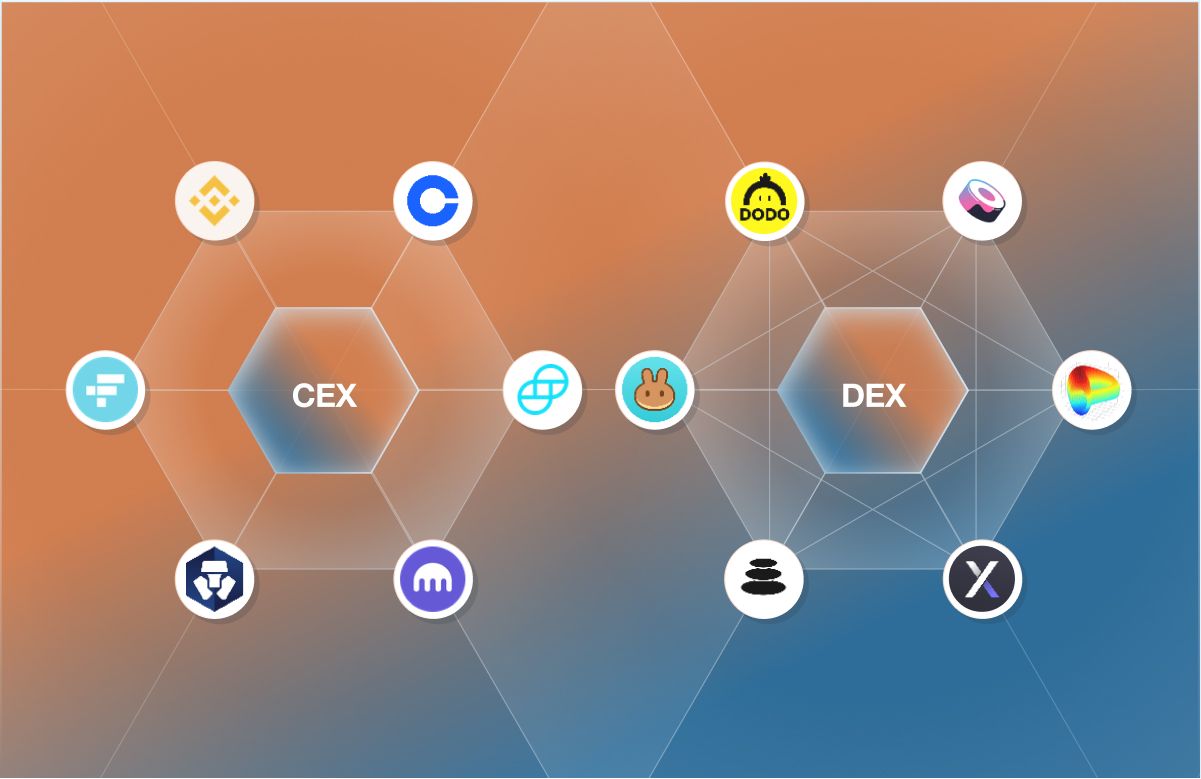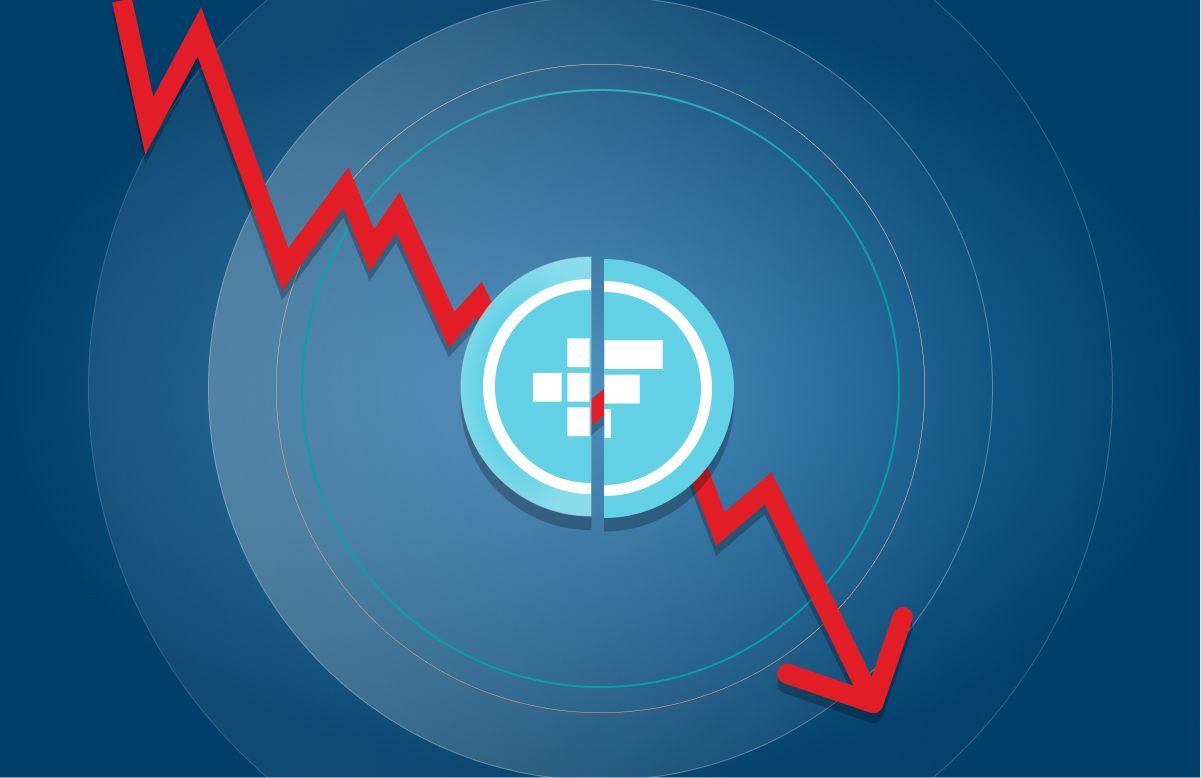

For cryptocurrency enthusiasts, investors, and the industry, 2022 was a year to put behind us. From massive frauds being exposed like the FTX crisis, to the collapse of certain industry titans, cryptocurrency suffered a rough year in 2022. That being said, what is clear in 2023 is that it’s shaping up to be a cleansing of the cowboys and a chance for the honest players to stand out.
As people welcome 2023, there is a sense of apprehension in the crypto community about what lies ahead for many stakeholders. The year 2023 may present an opportunity for cryptocurrency to improve its reputation. A sector that has occasionally come under fire from lawmakers and been dubbed a "Ponzi scheme," "very volatile," a "scam" has to regain the trust of the general, not-yet-involved public. However, many staunch believers claim that doubling investment in decentralized exchange (DEX) is the solution as the crypto collapses. They want to bypass the financial intermediaries and turn to decentralized exchanges, where they can trade peer-to-peer on the blockchain.
What is a decentralized exchange, and what advantages do they have over centralized exchanges?
Decentralized exchanges offer a decentralized trading platform allowing users to exchange digital assets without entrusting their funds to a third party. A blockchain or distributed ledger replaces the third party in a decentralized exchange. The underlying technology helps eliminate single points of failure by transferring crucial operations onto a blockchain. Thus, a decentralized crypto exchange gives users greater control over their digital assets and supports a more transparent and safer trade.
Decentralized platforms are non-custodial, meaning users maintain ownership over their private keys when conducting business on a DEX platform. Decentralized exchanges rely on smart contracts to execute market transactions by allocating the operation of transactions to autonomous code. Compared to centralized exchanges, smart contracts provide better privacy and lower trading fees.
DEX’s were created as an alternative to antiquated and defective financial systems that exposed their users to the risks of CEX’s. These risks frequently involve a lack of transparency, inadequate security, and technical problems. CEX’s can technically shut you out of your account and stop you trading if they wish, taking the control out of your hands.
Why are crypto lovers switching to DeX exchanges?
Decentralized exchanges are growing more popular and user-friendly while also increasing investor security. Due to their non-custodial nature, a crypto investors' money is in their hands with a DEX and cannot be frozen or restricted in any way by a centralized authority.
A huge advantage of DEX’s are Peer-to-peer trading, or P2P, which has substantially lower transaction costs than traditional exchanges. Investors can invest as little as they like to take advantage of trading activities. P2P’s other main advantage is the lack of regulations, which for those wanting to have more autonomy over what they do with their crypto, it’s a huge consideration factor.Over the past 5 years, DEXs have begun to challenge even the most established CEX’s for size and the momentum is not slowing down. The largest DEX is Uniswap, which now processes billions of transactions a day and only started in 2018 by an ex-Siemens engineer who learned to code on the Ethereum blockchain. According to CoinGecko, the market cap for DeFi hit an all time high of $172B in Nov last year, which later dropped after the FTX crash in Nov 22, but has since begun recovering and is now back up to $51B in Feb 23 with no signs of slowing.
How Decentralized Exchanges vs. traditional Centralized Exchanges work

Centralized exchanges serve as a go-between for buyers and sellers. Virtually all cryptocurrency transactions take place on centralized exchanges, which offer ease of use and more reliability. A centralized exchange is a platform that depends on an intermediary account or third party to keep track of and verify the security of all transactions. With a centralized cryptocurrency exchange, users deposit their money into a third-party account for a certain amount of time to guarantee the security of transactions.
Decentralized exchanges can be accessed through self-custodial wallets, (like Frontier). Multiple DEX’s can be accessed through the same wallet. This isn't the case for CEXes, which require a separate wallet for each exchange.
In contrast to CEX’s, DEX’s are non-centralized, operate without a central authority, and involve several parties managing the assets. Smart contracts and decentralized apps automate transactions and trades instead of conventional centralized exchanges. Which if constructed correctly, means security breaches are much less common.
Decentralized exchanges have shown to be more secure because there is no need to deposit money into intermediary accounts, which can be vulnerable to hacking. Centralized exchanges do adhere to strict regulatory requirements, however give little autonomy to users due to this. A cryptocurrency trader has total control over their money and every transaction with a self-custodial wallet.
Decentralized exchanges do not have the transaction fees that centralized exchanges do when users use third-party exchange services. Because no middlemen are involved, transactions on decentralized exchanges are more inexpensive than those on centralized crypto exchanges.
How Liquidity Pools work in Decentralized Exchanges?
In a liquidity pool, users can deposit assets, creating a pool of funds that are then used to match buyers and sellers for trades. The size of the pool, and the price of the assets within it, are determined by the supply and demand for the asset. By contributing to the pool, users can earn a share of the trading fees generated by the pool, which incentivizes them to provide liquidity to the platform.
This structure helps to ensure that there is always a sufficient amount of funds available for trades, making it easier for buyers and sellers to find each other and execute trades quickly and efficiently. The decentralized nature of liquidity pools also makes it much more difficult for market manipulators to interfere with prices, further increasing the stability of the system and creating positive incentives for crypto enthusiasts to choose a DEX.
Note: Understanding how liquidity pools work and can be used for passive income is important before providing liquidity yourself.)
Features expected within Decentralized Exchanges
- Traders maintain complete control over their cryptocurrencies because trades happen either in a wallet-to-wallet format or through automated market makers. This gives traders greater freedom when managing their coins.
- Liquidity Pools allow for trades and transactions more fluidly, and also reduce the risk of any instabilities in the system.
- Decentralized exchange members are compensated for supplying liquidity to an exchange, offering the potential for all users to earn passive income.
- A decentralized exchange often has reduced transaction fees compared to other cryptocurrency exchanges. However, the decentralized exchange itself and the network it runs will always determine this.
- Anyone can access the decentralized cryptocurrency exchange protocols and their smart contracts through self-custodial wallets like Frontier. Therefore, there are no restrictions on the kinds of individuals who can engage in these exchanges. On the other hand, no permission is required to create a new blockchain-based application using this data.
- Users are not required to go through KYC processes or extensive identity checks to join decentralized crypto exchanges. Decentralized exchanges are completely anonymous because they don't keep any consumer data.
List of decentralized crypto exchanges
According to traffic, liquidity, and trading volumes, the following decentralized cryptocurrency exchanges are at the top of the list:
- Uniswap
- PancakeSwap
- Curve Finance
- Balancer
- SushiSwap
- DODO
- KyberSwap
- dYdX
- DeBridge
- LiFi
What we learned from the FTX collapse; why trust is now paramount

The collapse of FTX, one of the biggest cryptocurrency exchanges in the world, caused the highly speculative market for digital assets to experience new turbulence. The collapse of FTX caused consumers and investors to lose billions of dollars. In the weeks following the FTX crash, the situation created a wave of crypto fanatics moving their assets from CEXs to DEXs. The overall daily trading volumes on DEXs including the likes of Uniswap leapt as high as $12 billion.
Still, it also had significant long-term effects, including a decline in public confidence in cryptocurrency. We first require a legislative framework that safeguards people and encourages innovation. The current system of enforcement-based regulation must change.
It's crucial to realize that once trust in anything is broken, it is very hard to be won again. Due to their breach of trust and violation of their own "terms of service," very few will want to invest through centralized exchanges after the FTX incident. Every cloud has a silver lining, and the FTX crash has led to a surge in investors looking to profit from the drop in cryptocurrency prices. Cryptocurrency investors must learn from their mistakes and move on.The crypto market's future looks bright. This is because mass adoption of cryptocurrencies will likely continue in 2023, contributing to the industry's positive long-term prognosis. Despite unfavorable news like the FTX collapse, more people will become comfortable with cryptocurrency via non-custodial and decentralized formats, creating a positive view for the future. The total crypto spot trading volume in January 2023 reached $1.88 trillion, 50% higher than the $1.25 trillion in December 2022 according to the recent February 3rd CoinGecko article, which shows the YoY growth in the industry despite messy situations like FTX and other CEXs going under. DEXs will undoubtedly profit from this growth through increased demand.
The Future of Crypto in 2023 and how DEX’s play their part

The crypto sector will continue to reorganize in 2023, following 2022’s dramatic drop, and those still standing will be ready for a major push in 2024. In other words, the coming year will focus on surviving to return to significant profits in the years to come. Given that mainstream acceptance is anticipated to continue in 2023, the industry has a positive long-term outlook. More users will be comfortable using cryptocurrencies, and despite unfavorable news like the FTX meltdown, crypto has an optimistic outlook for the future.
As the use of cryptocurrencies increases, regulatory efforts to establish universal norms and rules may also expand. The potential risks and advantages of cryptocurrencies, including their use for money laundering and illicit financing activities, may be better understood and addressed by governments and regulatory agencies.
The adoption of decentralized finance (DeFi) protocols is another trend that may persist in 2023. Blockchain-based DeFi services enable decentralized trading, lending, and borrowing of cryptocurrencies and other assets. By providing quicker, less expensive, and more transparent alternatives, they have the potential to transform conventional financial services completely.
Now with the possibilities in non-custodial wallets, such as Frontier, which allow you to perform crypto transactions, alongside having access to DeFi activity from the same wallet it makes it far less confusing and time consuming for the user. Previously, jumping between multiple apps and providers, the ease of use in one wallet makes it much more user-friendly and accessible, opening the door to more than just the educated enthusiast.
What features do crypto investors want on a decentralized exchange
- Low trading fees: Decentralized exchanges are online platforms that have very low operational costs. This explains why these exchanges have relatively cheap transaction fees. These exchanges can afford to run on transaction fees far lower than centralized exchanges since they simply have to pay other parties who supply liquidity.
- Retail ownership: Crypto investors want to retain ownership and management of the coins. The coins are not deposited with the exchange like centralized exchanges; rather, they remain with the users. This prevents the possibility of confiscation by an exchange or by government agents.
- More transparency: Decentralized exchanges typically give investors additional information to help them feel secure because they are thought to be riskier. The record is significantly more transparent as a result of this information. Because of the added transparency afforded by decentralized exchanges, informed investors familiar with cryptocurrencies prefer them.
- Non-custodial wallets: Wallets such as Frontier. A non-custodial wallet offers users complete control over their private keys and, as a result, total responsibility for safeguarding their holdings. Cryptocurrency users have total control over their private key and money when using non-custodial wallets.
Closing comments..
As we saw, 2022 was not been kind to the reputation of cryptocurrency, but analysts predict that things may greatly improve for the sector in the following year. The year 2023 may present a chance for cryptocurrency to clean out it’s closet and present new more trustworthy experiences for users given the closer ‘public lens’ crypto now has on it.
Customers demand more openness in terms of security and compliance. This will force exchanges to practice greater self-regulation and hold them to better standards. This will purge the ecosystem and make room exclusively for serious players who see the value of building trust to conduct business. There will be fewer cowboys, and a higher level of trust in those established providers who are still standing with extra scrutiny on them.
DEXs allow for a lot more freedom and exploration of what’s possible for crypto, DeFi, and blockchain technology without being held captive by the CEX regulatory landscape. So the continued appeal for avid adopters is beyond a yield and trading perspective, but on what can be coded and built to replace the traditional financial ecosystem.
Owners of cryptocurrencies will always need to consider how to hold and preserve their assets if ownership grows more widespread. Users desire more and more to be the sole stewards of their private keys and, thus, managing assets using a non-custodial wallet has never been more sought after. It’s an exciting time to be part of the crypto and DeFi space, finding providers you trust who give you control of your assets and the possibilities for a high-yield return is what makes the industry so promising in 2023.
Wanting a non-custodial wallet you can trust? Download Frontier - The One Web3 Wallet that includes Crypto, DeFi, NFTs, and more. It enables your personal crypto journey with non-custodial security, fraud detection, and prevention mechanisms. Contact Us here to speak to our team/community, we’d love to hear from you!

Chief Product Officer (CPO) at Frontier Wallet. Entrepreneur building for a Decentralised World - Blockchain, Self-Custody, Crypto, DeFi, NFT, and more





